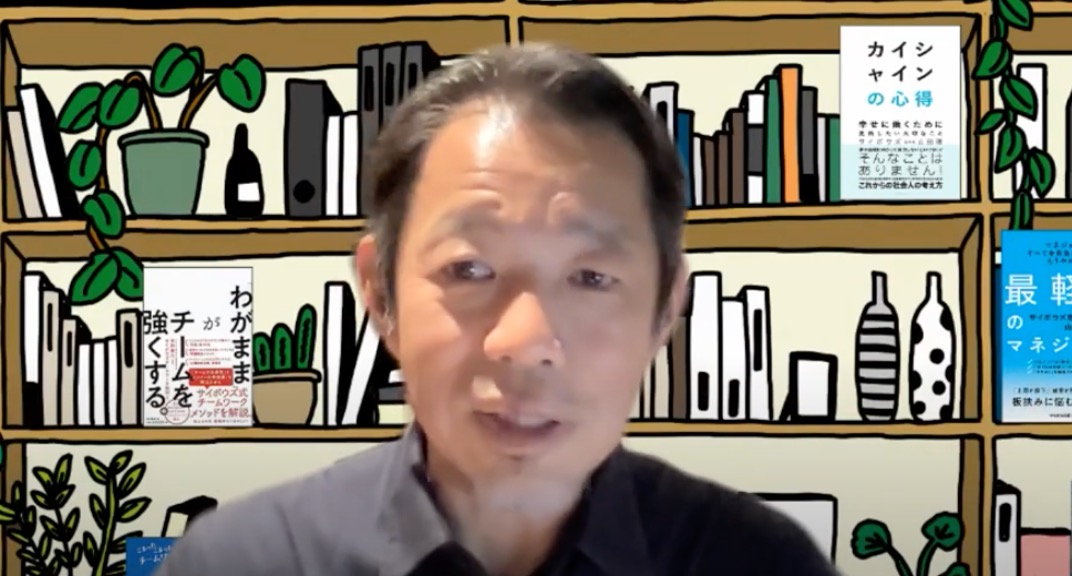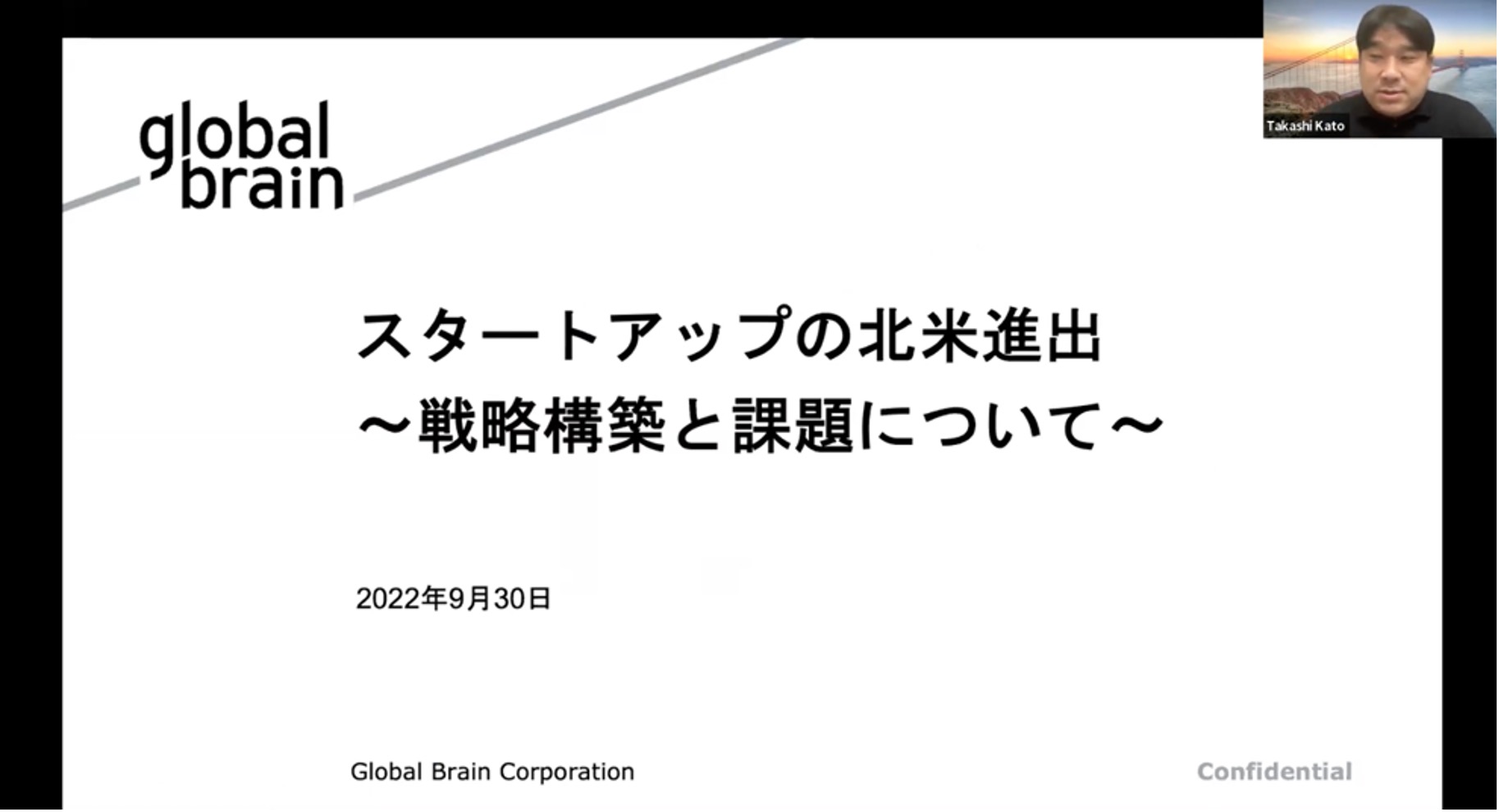X-HUB TOKYO, which supports overseas expansion of startups in Tokyo, held its #4 overseas expansion seminar “Learning from the World’s Largest Innovation City ~How to Expand into “Silicon Valley”~ on September 30.
The event included an overview of X-HUB TOKYO, the characteristics and attractiveness of the Silicon Valley market, and how to build a business strategy that startups aiming to expand into North America should know. The event shared useful information and know-how for startups aiming to expand overseas and organizations that are considering collaborating with overseas startups.
In the first half of the event, Ms. Risa Ishii, Director of Japanese Partnerships at Plug and Play Tech Center, introduced the latest ecosystem information of Silicon Valley. Then, Mr. Osamu Yamada, former Executive Vice President and General Manager of Cybozu’s Organization Strategy, shared his experiences and the reality of doing business in Silicon Valley.
Finally, Mr. Takashi Kato, Partner and US Office Representative at Global Brain Corporation, talk about the strategies that startups aiming to expand to Silicon Valley should know.
Introduction to the Silicon Valley Ecosystem
 Plug and Play Tech Center Director, Japanese Partnerships
Plug and Play Tech Center Director, Japanese Partnerships
Ms. Risa Ishii
- First, we will hear from Ms. Risa Ishii, Director, Japanese Partnerships at Plug and Play Tech Center, one of the world’s largest accelerators/VCs, about the attractiveness of Silicon Valley and its ecosystem.
-
As you all might know, Silicon Valley is the world’s largest innovation city and has attracted many people around the world, including startups, investment institutions, major companies, and research institutes. Silicon Valley boasts an overwhelming amount of funding, with the world’s best universities, such as Standford University, University of California, Berkeley, and the private sector actively collaborating with industry and academia, and by 2021, Silicon Valley alone attracted 17 trillion yen in VC investment. Of course, startups related to recent popular “web3,” biotech, and fintech, are also concentrated in the region, and a large amount of investment is being made in these areas.
In the Silicon Valley business scene, the speed of decision making is very fast, and a culture of mutual respect for each other’s time is prevalent, with meetings basically set every 15 minutes. In addition, each person is required to focused on results while working on the work they love.
In addition, during my stay in Silicon Valley for five years, I have personally felt that the greatest feature and attraction of the area is the diversity of races and people. In other cities and states in the U.S., immigrants account for approximately 10% of the population, but in Silicon Valley, they account for approximately 40%, a very high percentage. I do feel that this diversity is what makes Silicon Valley and its ecosystem much attractive.
- Through your experience of supporting many companies, what do you think are the “skills and mindset required of a world-class entrepreneur”?
-
I have no entrepreneurial experience myself, but having talked with many startups and entrepreneurs, I have a presumptuous feeling that personal relationships, business strategy, and the willingness to learn are three important points.
A startup has no people, money, or accomplishments, and its brand has not yet been established. That is why you are required to first verbalize the value of your company and services and properly communicate them to others. Also, as society changes at breakneck speed with the advancement of technology, it is important to suspect your own experience and learning to update and relearn.
We have provided support to many companies in the past, but there is no rules or method that says “this is the way to enter Silicon Valley. So, if you really desire to enter the Silicon Valley, we encourage you to take the plunge right now!
Tips for Startups Aiming to Enter the Market in Silicon Valley
 General Manager of Organization Strategy (former Executive Vice President) of Cybozu, Inc.
General Manager of Organization Strategy (former Executive Vice President) of Cybozu, Inc.
Mr. Osamu Yamada
- Next, we will ask Mr. Osamu Yamada, General Manager of Organizational Strategy (former Executive Vice President) of Cybozu, Inc. about how his company decided to enter Silicon Valley.
-
We have made two forays into Silicon Valley, in 2001 and 2014, to further expand our business in Japan. From that experience, I would like to begin by word with “it is very difficult to expand into US.” The language and culture are different, and it is difficult to know how far you could sell your products and services. We faced many difficulties, and when we first entered the U.S. market in 2001, we had to pull out after only three years. However, we rebuilt our organization and re-entered the Silicon Valley market in 2014, and here we are today.
When we first entered the Silicon Valley in 2001, we hired local employees and localized our products under the leadership of a Japanese office manager. However, the main reason for our failure was that our experience and know-how build in Japan were no longer sufficient to cover the needs of the local market. At the time, Cybozu had just gone public in Japan, so we had to conduct business in the U.S. with very limited resources, and we were selling products that did not fit the U.S. culture at the time.
After we rebuilt our structure of organization on the Japanese side, we entered Silicon Valley for a second try in 2014. Currently, I am leading the development of the product in Japan, while the U.S. team is focusing on marketing strategy. We still have a lot of work to do, but we are building our team and developing our business based on our first failure and keeping in mind that “there are 100 different ways of working for 100 different people.”
- Are there any attractiveness of Silicon Valley that you have renewed after your two business entries?
-
Silicon Valley’s environment, where you can “get to know the world’s top level,” is still a major attraction for promoting business. You could also learn how companies are approaching issues. On the other hand, I feel that having an overseas base allows me to discover the differences and advantages of Japan.
There is a tolerance for doing unusual things, and in that environment, many people do unusual, unique things. I realize every day that innovation is born from this kind of wonderful environment and diversity is spreading.
I have talked about many things today, but I cannot yet call our Silicon Valley expansion as a “success story,” and we are still in the middle of our journey. Please take care when you try to expand your business in Silicon Valley!
Insight for Foreign Startups Success in Silicon Valley
 Global Brain Corporation Partner and US Office Representative
Global Brain Corporation Partner and US Office Representative
Mr. Takashi Kato
- Finally, we will hear from Mr. Takashi Kato, Partner and US Office Representative at Global Brain Corporation, a Japan-based venture capital firm, about how startups could develop a business strategy.
-
Global Brain leverages its global network to invest in venture companies and manage funds that support startups in a wide range of fields, from IT to DeepTech, the latest technologies, and business models that lead to solutions to social issues. We also invest in venture companies. I was assigned to the San Francisco office in 2019 and have been engaged in investment activities in North America for about 3 years. Today, I would like to share about some of the experiences I have gained during this time.
In our interactions with companies looking to expand into North America, we find that many of them experience four main difficulties. The first is language. I would suggest that if you have a strong desire to expand overseas, it would be a good idea to focus on improving your language skills. Sometimes I hear people say, “I will expand overseas when I a gain ability to speak English”, but please reconsider whether that is really the right timing.
The second is how to choose the right partner. If you have no connections when entering North America, we recommend signing a partnership agreement for the purpose of exporting your products or services. However, there is no clear answer to “finding a good partner”. Personally, we recommend contacting them, rather than waiting for an outside introduction. That would help you verbalize the image of the partner you really need right now, which will be a great reminder for you to proceed with your business.
It is also important to clearly determine the line whether you continue the business or withdrawal. To set this, please take an objective view of your own position by regularly comparing your business with that of Japanese companies which you benchmark against. If you have a clear idea of the importance of your North American expansion in your business plan, you will naturally find the answer to your question.
It needs a long time to see the results from a North American business expansion. Based on this premise, please try to check your own business plan. We hope your success!
- The event provided useful information and experiences for Japanese startups considering expansion to Silicon Valley. X-HUB TOKYO will continue to provide information on the latest trends and features of open innovation ecosystems overseas through various events.

